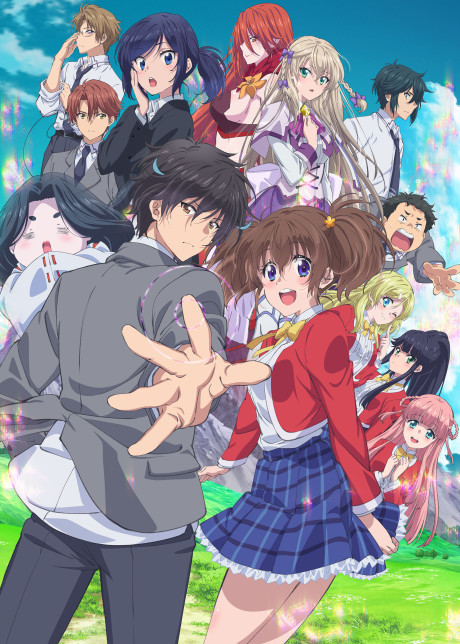Around 3 years ago I watched a
Space Pirate Captain Herlock: Outside Legend - The Endless Odyssey and liked it very much (
see review here). I found Herlock to be very likable and relatable.
I wanted to watch the original 1978 version as well but due to various circumstances never came to do it until recently.
I often complain that sequels are not as good as originals. Some do not live to the high mark of their predecessors, other got completely fucked up and corrupted by a different creative team.
The Herlock made of a curious inversion of this rule. I liked new Herlock a lot more than the original one. 2002 Herlock is strong and silent, very introverted and melancholic character who is wise, capable, makes sound and well thought decisions, saves people loyal to him and then universe as well. Herlock of 1978 is by contrast a contrarian who fights against all that is good and somehow calls it freedom.
I only watched up to episode 7 of the original but so far it does not shape up to be good at all. Differences between it and The Endless Odyssey are subtle but significant.
To begin with ideology and world set up. In The Endless Odyssey it was World Government that was hellbent on ending Herlock and all the pirates. They captured Key and most of Herlock's crew and wanted publicly to execute them as a show of force and to intimidate opponents. Herlock merely fought back to save his and his crew's freedom from government oppression.
The Endless Odyssey government was motivated by nothing more than desire to oppress and enforce their evil order against people's will. The Endless Odyssey government ruled over dirt poor wasteland and was a total mess. It was space North Korea, the polar opposite of the utopia that government was in the original Herlock.
In the 1978 original it's not the government that opposes Herlock but its Herlock who oppose government instead. In fact, government is almost happy to leave that Herlock alone, but he keeps bothering them all the time. And the reason he opposed government was nothing less than because it's "too weak and relaxed". Herlock and other characters keep complaining how people on Earth are weak and worthless.
At times the whole 1978 show feels like a cheap advert of "tough times ideology" that is popular with some idiots nowadays. Tough times and toughness do not make anything better, people who believe in benefits of tough times are morons beyond redemption and should all be exterminated.
Thus, when in The Endless Odyssey Herlock called his pirate flag, the Flag of Freedom. It actually meant something. It was a flag of freedom from government jackboots, oppression and poverty.
In 1978 Herlock also calls his flag, the Flag of Freedom but here it does not make any sense at all. What freedom? Herlock does nothing to save Mayu who is being abused because she is his daughter. In fact, he even finds delight in thinking about her suffering. I maybe support BDSM Maledom femsub, but that is not it. Also, no one who deliberately causes suffering to their own children is a decent person. Herlock also puts Daiba in danger and more. He does not fight for freedom; he fights to make people suffer and that is not something I can approve. 1978 Herlock's is not flag of freedom but a flag of suffering. Something neo-Christian cult wants to impose on society.
Speaking of Daiba, in 2002 he is rather unlikable. Overly emotional boor who gets in fights just for the sake of it. I always thought that he is unnecessary character who adds nothing to the story and should not even be in it.
In the original Daiba is not anymore likable but has a much more prominent role. He also looks very much like Herlock himself, as if he is his younger brother or son. This dynamic does not appeal to me at all.
Because of Daiba I was willing to give original Herlock a little more time to develop, thinking that once Daiba ark is over, we will move to the more interesting parts, but as of episode 7 that seems increasingly unlikely.
When it comes to Herlock, then in the 2002 Endless Odyssey he was, a strong and silent Byronic hero type. He was wise, smart, capable and many more. 2002 Herlock travels space, learns secrets of the universe and solves problems for the benefit of himself, his crew and humanity.
Herlock of 1978 is basically a bully and an asshole who lives by some stupid rules that make no sense and believes that comfort is bad.
Unfortunately, Mayu is a kid in original while she was cute teen girl in 2002 Endless Odyssey. Her episodes in the original are unpleasant to watch.
Opponents are also different. In The Endless Odyssey they were ghosts of the past. Dead scientists who opened some ancient vault, got killed, turned into ghosts and now wander the universe, killing people. They were part of Noo, the ancient fear that destroys civilizations. Herlock eventually defeated these outdated fools. I liked it because I like when young prevail over old.
In the original the opponents are women who burn like paper, Mazone. They are pretty and very feminine. Sure, story justify fighting them, but that is still a fight against what is good, beautiful and pleasant. Not something I support.
There are few things that are mostly the same. Both Miime and Key are rather feminine and demure, something I like. Unfortunately, we no longer have the black-haired female assistant to older Daiba.
As of episode 7, original 1978 Herlock is on its way to being dropped with rather low score. I will probably watch a few more episodes to make sure my conclusions I outlined here are correct, but so far it does not look promising at all.
Black pants Herlock of The Endless Odyssey maybe a hero but his washed-up jeans predecessor from original is not. Only the black pants Herlock fights for freedom, the washed-up jeans Herlock only fights for suffering.





